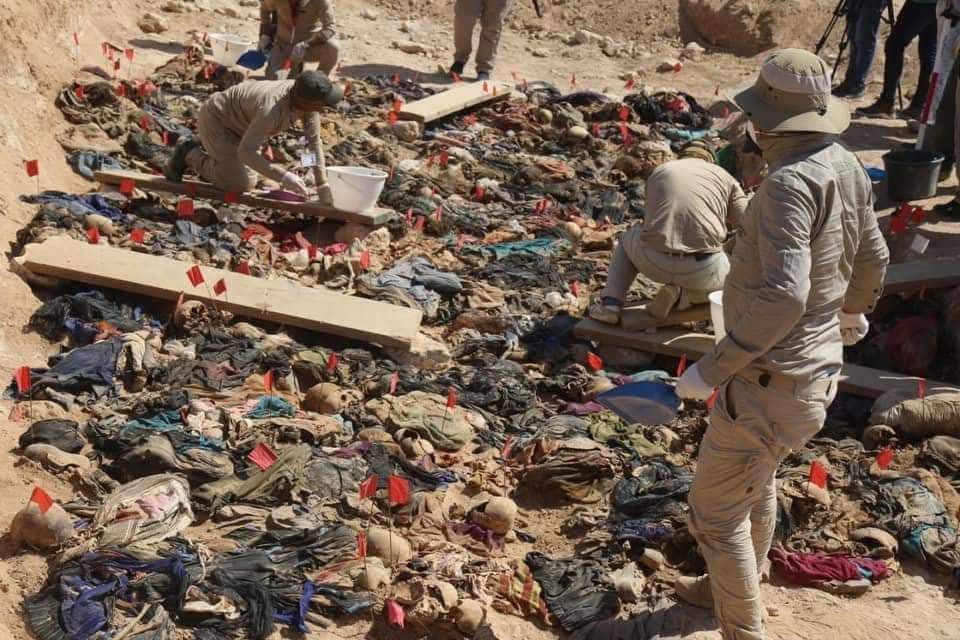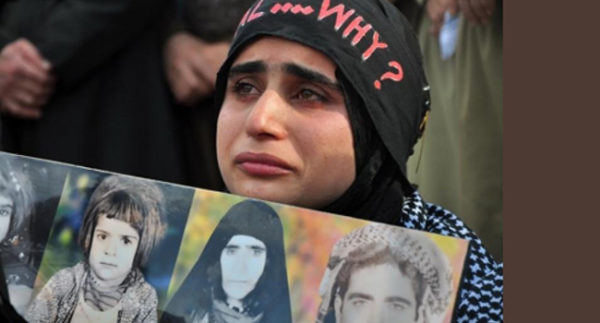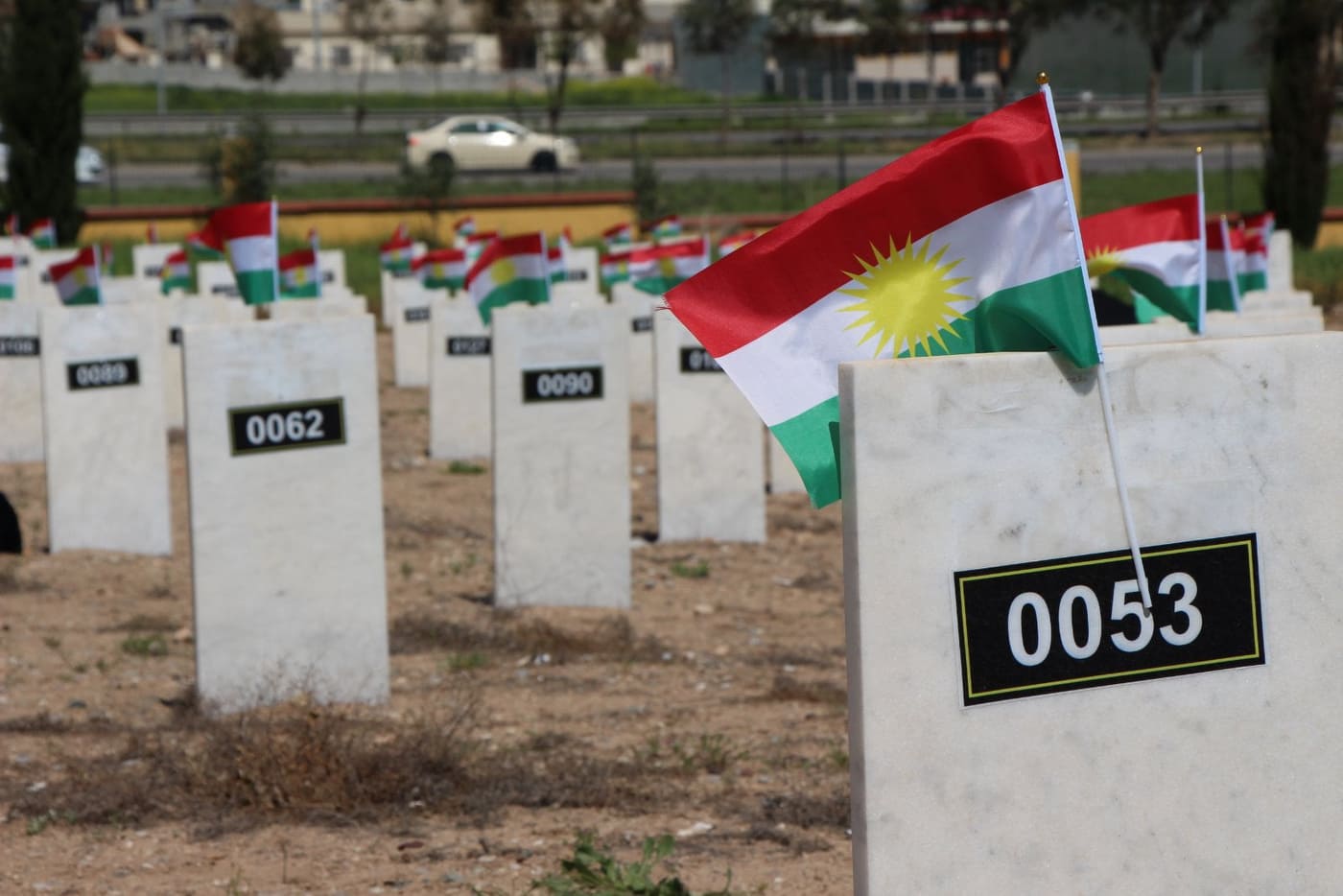The families of Anfal victims annually hear different promises from the authorities. Yet, they neither see the promises being delivered, nor significant changes happen to their lives and the cases.
While Tuesday, April 14, was the 32 anniversary of the Anfal campaign, in which the former Baathist Regime of Iraq brutally killed 182 thousand Kurds, the families of the victims are still wounded, and their eyes are full of tears. A significant number of them have a misery life as neither the promises of the political parties nor those of the government have been fulfilled.
Wrya Abdulkhalq, a father of an Anfal victim, stated it is a history of hearing promises without seeing actions. He explained numerous of the promises to KirkukNow, such as the recognition of Anfal as a genocide, archiving the remnants of Anfal and exhibiting them in a particular museum, and the lack of recording the memories of the survivors.
He revealed more unfulfilled examples, such as creating a particular ID for the families to facilitate their work in government institutions, increasing their salaries to the amount paid by the central government.

Samawa, the exhumation of a mass grave of the Kurds, 2019. Photo: Kurdistan Regional Government’s Ministry of Martyrs and Anfal Affairs
This year no commemoration events were arranged due to the outbreaks of the novel coronavirus in the Kurdistan Region.
Gulabakh Mohammed, whose husband was killed during the Anfal campaign, have become disappointed in the promises. “A promise was to receive our salaries through payment cards but was not delivered. We want the brothers and sister of Anfal victims to be put first, asked for the employment of our youths, and the rehabilitation of our villages. They are all promises, but nothing happens,” she said
Kurdistan Regional Government has recognized April 14 as the anniversary day of Anfal, which has also been recognized as an act of genocide by the KRG and its parliament as well as the Central Government in Baghdad.
Adil Majid, a survivor of Anfal, has repeated his requests for years without receiving answers for them.
“Our demands are the transportation of the corpses of our beloved ones… opening a hospital for the families of the victims, building a sporty city, and a project for the psychiatric rehabilitation,” Majid stated.
In the Kurdistan Region, among 182 thousand people, including the Barzanis massacred by the former Baathist Regime, only two thousand and 500 corpses have been exhumed and transported to the Kurdistan Region. They have been buried in an Anfal memorial

Kirkuk, a woman, whose family were killed during the Anfal campaign, is in tears in the commemoration of Anfal in Topzawa village, 2015. Photo: KirkukNow Archive
Nask Aziz is among hundreds of women whose husbands were killed during the campaign.
She repeats her demands, as she has done in the past years, “we want the Jashes [a Kurdish term used to call the Kurds who worked for the Baathist regime] and their advisors to be tried. The salaries of the advisors should be cut, which are higher than the salaries of the victims. The families of the victims should be compensated.”
The Baathist regime led by Saddam Hussein launched the Anfal campaign against the people of the Kurdistan Region as well as Kirkuk Province. According to KRG statistics, 182 thousand Kurds were abducted and were buried in mass in the deserts of southern Iraq.
Ismail Hanarai, whose relatives were killed in the campaign, stated that the villages and their roads are yet to be fully reconstructed, which were devastated by the Baathist regime.
“Opening a psychological rehabilitation hospital, the implementation of the Supreme Court to arrest the criminals and compensation the victims are among the promises that we are waiting to be fulfilled,” Hanarai stated.
The Anfal camping, which took place from February to September in 1998, consisted of six phases in which 182 thousand civilians in the Kurdistan Region and the Kirkuk provinces were massacred. Thousands of Kurdish villages were demolished, too.





